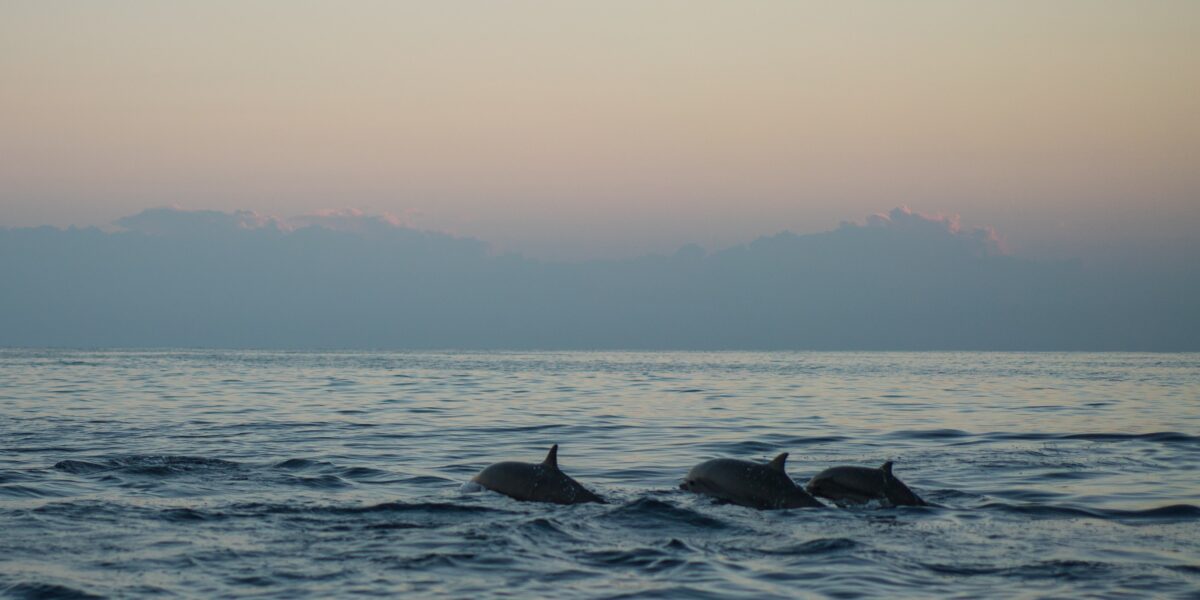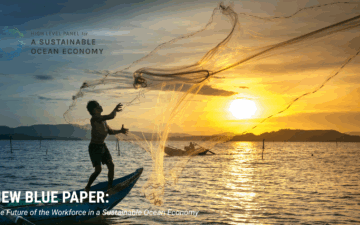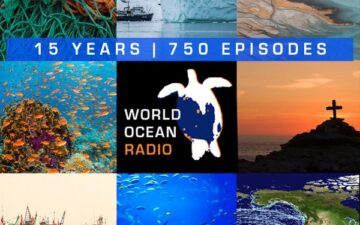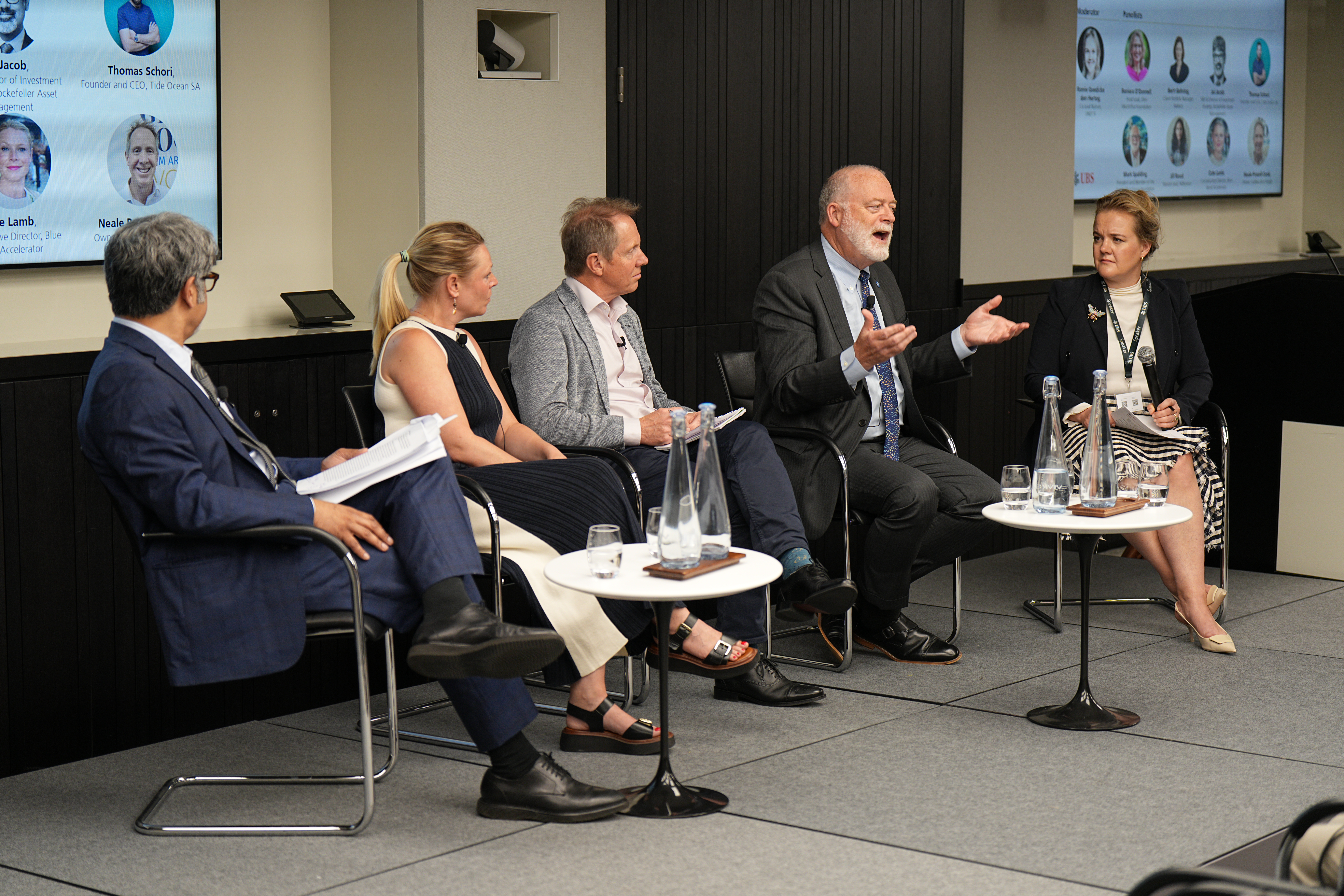Maybe I don’t need to travel so much. Maybe none of us do.
In early November I spoke in Singapore. And by that, I mean I skipped my after dinner glass of wine in order to be awake at 10 PM when I went live online to give a talk about ocean conservation as part of a panel.
Yes, given that I began that day with a 7 a.m. conversation with colleagues in Europe, presenting live late at night was something of a sacrifice. But, before the COVID-19 pandemic and its related safety precautions, to give this kind of talk, I would have flown to Singapore for a couple of nights, likewise for the suite of conversations I had with people on multiple continents just in the past few weeks. In fact, I was spending more than half the year away from home. Looking at my old travel schedule now from this new perspective, I am recognizing that trips like that were the real sacrifice for me, my family, and for the planet.
Since March, I’ve realized that there’s a whole suite of apps on my phone that I no longer use, airport maps, airline schedules, hotel apps, and frequent flyer programs. I’ve unsubscribed from travel sites because I haven’t needed any deals to stretch our travel budget. But conservation activities haven’t stopped. In fact, for me, it’s been a blessing in disguise.
While I never had a lot of trouble with jet lag, my sleep patterns are definitely more consistent. And, I can spend more time at home with family. In fact, I have more time for everything.
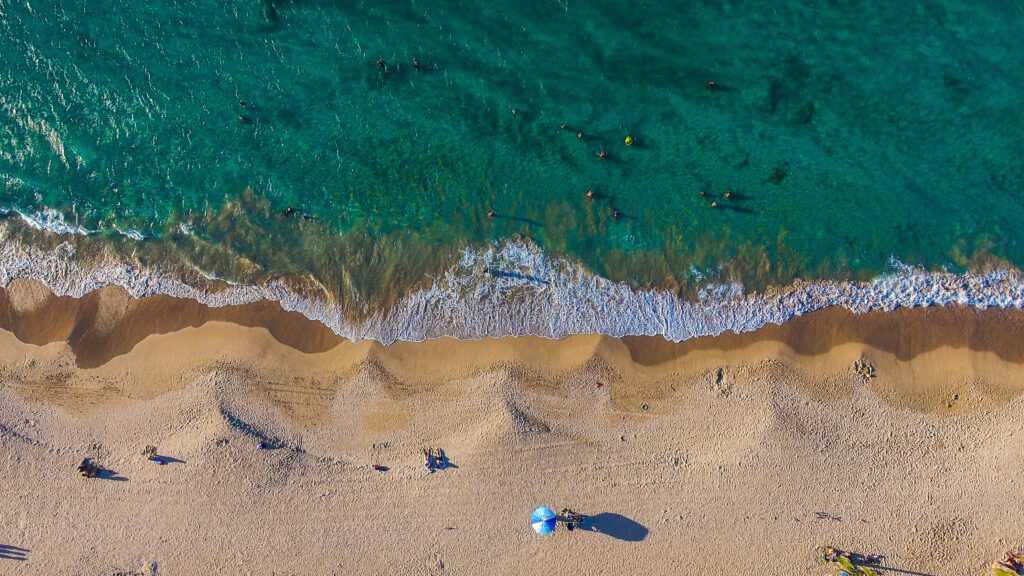
Even with all of the tools at my disposal as a frequent flyer and so-called road warrior, I would wait for Lyft or Uber to go to the airport, wait to check in for my flight, wait to go through security, wait to board the plane, wait through customs and immigration, sometimes wait for luggage and then wait for a taxi, wait for hotel registration and wait to register for the conference. My estimate is that all of this added up to two hours per trip of standing in line. That means I was spending about 10 work days a year just standing in line!
Of course, there’s also the food. By definition, conferences have to feed a lot of people all at the same time—the food can be decent, but it’s generally not what I would choose, just like the food on airplanes. Not taking those flights to conferences also means a host of temptations missed. I’ve heard from colleagues that they find themselves more rested, as well as feeling they are able to participate remotely and still be effective.
I was spending more than half the year away from home. Looking at my old travel schedule now from this new perspective, I am recognizing that trips … were the real sacrifice for me, my family, and for the planet.
I admit I do love to travel. I even love airplanes, airports and flying. I also really miss revisiting favorite spots, seeing new places, eating new foods, learning about new cultures—the street life, the historical sites, the art and the architecture. And, I really do miss socializing with friends and colleagues at conferences and meetings—there is something special about shared meals and other experiences (good and bad) that build a bond across cultural and other differences. We all agree that we miss the myriad of adventures that inevitably occur when traveling—and I do not believe that we should all give them up permanently.
But those adventures come at a cost that is way beyond sleep disruption, less healthy food, and time in line. When I do not travel, my carbon footprint plummets and that is a good thing for everyone. I cannot deny that the ocean I am devoted to protecting and the planet as a whole are much better off when my 12 minute share of a 60-minute panel is delivered via Zoom or other online meeting platforms. Even if every one of the other panels at the conference is of value to me and my work for the ocean, and even if I offset the carbon footprint of travel by investing in the restoration of critical ocean habitat, it is better to have not generated the emissions in the first place.
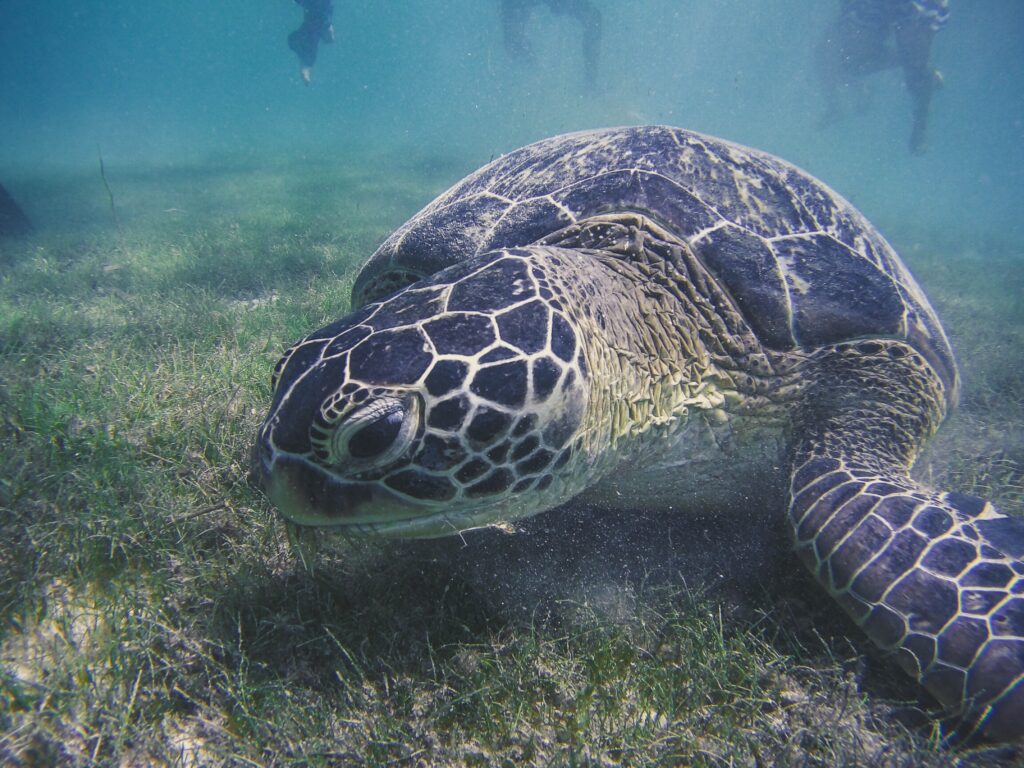
In my conversations with colleagues, we’ve all seem to agree that this is an opportunity to weigh our actions even more than we already were. Perhaps we can learn something from COVID-19 and the forced limitations on our travel. We can still engage in teaching, capacity building, training and engaging with new communities. We can still engage in learning, listening, and debating what can and should be done for the good of the ocean, with fewer negative effects on the natural resources we are working to restore. And, these on-line gatherings offer those with fewer resources the opportunity to truly participate in more events—deepening our conversations and broadening our reach.
I cannot deny that the ocean I am devoted to protecting and the planet as a whole are much better off when my 12 minute share of a 60-minute panel is delivered via … online meeting platforms.
Finally, I’m experiencing a positive aspect of online meetings and conferences—one that surprises me as a benefit of being in one place all of the time. I am staying more in touch, more often, with a network of people across Europe, Africa, Asia and Latin America and the Caribbean albeit via a constantly revolving set of screens. Those conversations no longer wait for the next time I’m at the same meeting or the next time I visit their city. The network feels stronger and we can get more good things done– even as I acknowledge that the network was painstakingly built over decades, and is strong because of hallway conversations, in person chats over coffee or wine, and yes, even while standing in line.
Looking ahead, I am excited to see the TOF staff, Board, Advisors, and our broader community in person again. I know good travel adventures await. At the same time, I have come to realize that what I thought were good strong guidelines for determining “essential travel” were inadequate. We have not yet come up with the new criteria, but we know that the good work of our team and our community can continue if we all commit to enabling on-line access and doing our very best for the ocean in all our activities.
Mark J. Spalding, President of The Ocean Foundation, is a member of the Ocean Studies Board, the U.S. National Committee for the Decade of Ocean Science for Sustainable Development, and of the National Academies of Sciences, Engineering, and Medicine (USA). He is serving on the Sargasso Sea Commission. Mark is a Senior Fellow at the Center for the Blue Economy at the Middlebury Institute of International Studies. And, he is an Advisor to the High Level Panel for a Sustainable Ocean Economy. In addition, he serves as the advisor to the Rockefeller Climate Solutions Fund (unprecedented ocean-centric investment funds). He is a member of the Pool of Experts for the UN World Ocean Assessment. He designed the first-ever blue carbon offset program, SeaGrass Grow. Mark is an expert on international environmental policy and law, ocean policy and law, and coastal and marine philanthropy.
